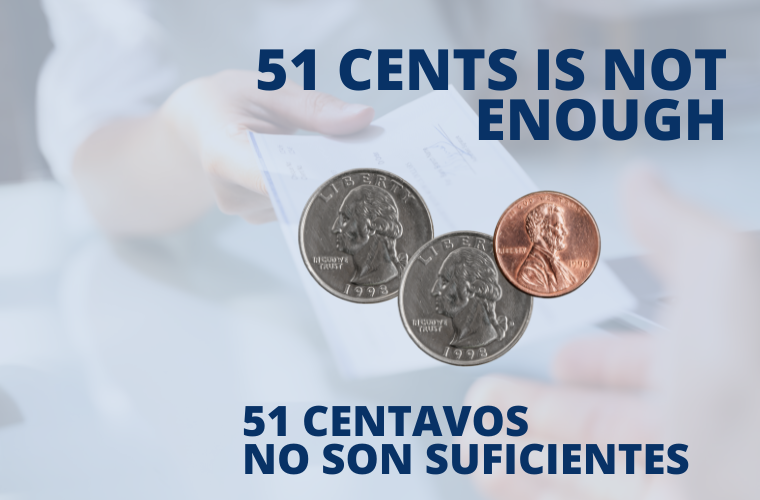

“Equity” or Exclusion? How H.R. 734 Strips Trans Students of Their Civil Rights
On April 20, the House passed H.R. 734, a bill that seeks to enshrine discrimination against transgender students within federal anti-discrimination law itself.
The appallingly named “Protection of Women and Girls in Sports Act of 2023” would prohibit all trans women and girls from participating in school sports teams consistent with their gender identity by amending 20 USC § 1681, the statute commonly known as Title IX, which prohibits sex-based discrimination in educational programs and activities that receive federal funding.
Equal Rights Advocates unequivocally supports the full inclusion of transgender, non-binary, intersex, and gender non-conforming students in school sports. In March 2023, we joined a letter to Congress signed by nearly 100 gender justice organizations vehemently opposing H.R. 734, identifying that the bill indisputably constitutes discrimination on the basis of sex and that it fails to address actual pervasive barriers to women and girls’ full and equitable participation in school sports teams. H.R. 734 would do nothing to protect students of any gender; it would only contribute to the recent, unprecedented wave of legislative attacks against transgender youth nationwide.
Rise of Anti-Transgender Legislation and Targeting of Trans Student Athletes
Anti-transgender legislation has been introduced in 47 states so far in 2023, including here in California, and trans student athlete bans have gained particular traction. Starting with Idaho in 2020, 21 states have passed these bans in only three years. Many of these bills specifically target transgender women and girls. Although similar bills have been proposed at the federal level in previous years, H.R. 734 is the first to have progressed so far through Congress.
H.R. 734 is not only concerning due to the impact it would have on already vulnerable students, but also because it represents efforts by conservative legislators to undermine well-established regulatory structures that do not fit their political agenda. This is perhaps most evident in the fact that H.R. 734 proposes changing the law in such a way that is completely incompatible with how Title IX is written and has operated for the past 50+ years.
Undermining Regulatory Structures and Title IX
H.R. 734 seeks to amend Title IX by adding a subsection specifically about sex-based athletic participation. The proposed amendment would forbid “a person whose sex is male” from participating in women and girls sports teams. The amendment also specifically defines sex for the purposes of the subsection to be solely based on “a person’s reproductive biology and genetics at birth.”
However, this proposal does not fit in the current statutory text of Title IX. Nothing in 20 USC § 1681 addresses athletics. In fact, Title IX does not define “sex” or discrimination on the basis thereof. Instead, the statute establishes the anti-discriminatory purpose of Title IX and then directs federal agencies responsible for distributing federal education funds to issue rules for how the law will be implemented. Questions like how Title IX defines “sex” and “sex discrimination,” or how Title IX applies to school athletics, has always been addressed through administrative guidance and regulations—regulations like the proposed rule issued by the Department of Education earlier this month that specifically prohibits the type of categorical ban on trans students’ athletic participation that would be established under H.R. 734. There is simply no reason for Congress to establish athletic-specific rules and definitions under Title IX now, for the first time since the law’s inception in 1972, except as an attempt to bypass the Department of Education’s long-established rule-making authority.
Pushing Back Against Discriminatory Legislation: Efforts to Protect Transgender Americans
Thankfully, H.R. 734 and similar discriminatory legislative efforts are not going unchallenged. Bipartisan lawmakers around the country are pushing back on harmful bills and introducing their own legislation that seeks to affirmatively protect the civil rights of transgender Americans. Bills protecting access to gender affirming healthcare, including trans-inclusive reproductive care, are progressing in Colorado (SB188), Oregon (HB2002), and Washington (HB1469). Here in California, Governor Newsom signed multiple bills in 2022 advancing access to trans-inclusive healthcare, including The TGI Inclusive Care Act (SB923) and SB107, which established California as a sanctuary state for children and families seeking gender affirming care. These bills added to existing legal protections for transgender Californians, including explicitly protecting California students from discrimination on the basis of actual or perceived gender identity and transgender status.
Civil rights are not a zero sum game, and true gender justice will never include discriminating against one faction of our movement in the name of “protecting” another. ERA stands with trans students, as we stand with all those harmed by sex discrimination. We will continue to fight back against H.R. 734 and other legal efforts that attempt to undermine the rights and well being of all women and girls±— not just some of them.
Stay Connected & Take Action
- Get the Latest News & Information Sign up for Email Updates
- Sign Up for Action Alerts Join the Action Team
- Follow Us


